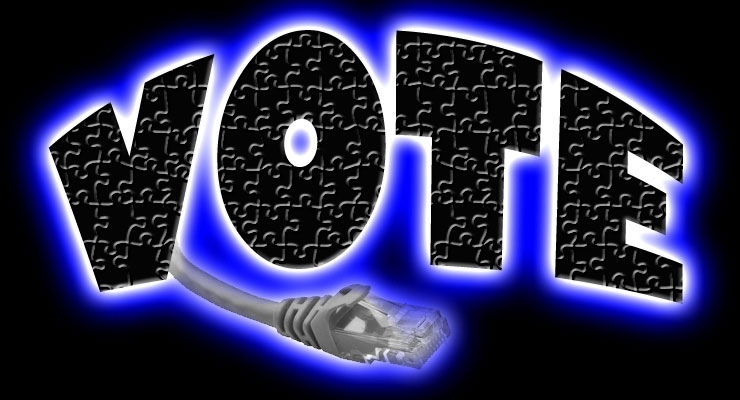
While the current United States administration focuses on the border crisis, the threat to our election security is largely ignored. A Republican majority Senate has blocked two election security efforts. When the media asked Senate Majority Leader Mitch McConnell why he refuses to pass election security, he responded that it was a partisan effort and that President Trump had done much to address election security, according to CBS News reporting. House and Senate Democrats are asking for Congress to address what it sees as election vulnerabilities, including “aging voting equipment, insecure voting registration, and paperless ballots without a back-up,” as reported by CBS News.
Threats to election security are largely seen as a partisan issue in the United States, with Republicans calling the efforts partisan and Democrats warning against similar efforts by a foreign power in the 2016 election happening again in 2020.
In February 2019, the U.K. Committee on Digital, Culture, Media, and Sport released the “Fake News and Disinformation” report. The report detailed efforts by Cambridge Analytica and subsidiaries across the globe in strategic communications efforts to impact and influence elections across the globe. Cambridge Analytica initially worked on U.S. Senator Ted Cruz’s digital campaign in the United States Republican Primary, and ultimately, helped the Trump Presidential campaign with their digital campaign. Cambridge Analytica employed an effort to use psychographic targeting in the United States, which used misinformation and fake news targeted at groups and individuals considered persuadable to change their opinions, views, and ultimately, their vote.
The major issue in the coverage of Cambridge Analytica is the idea that vulnerable individuals easily persuaded by misinformation campaigns is a threat to democracy. Misinformation campaigns and the tools used by Cambridge Analytica are considered by former Business Development Director of Cambridge Analytica Brittany Kaiser’s testimony to U.K. Parliament, as “weapons-grade communication,” meaning that if it were to be used outside the United Kingdom, the organization would need to alert the U.K. government.
While efforts in the United Kingdom to address election security and investigate past referendums and elections is ongoing, the United States has information detailed in the Mueller Report on Russian interference as well as a report recently released by the Senate Intelligence Committee on Election Interference. However, Senate Majority Leader Mitch McConnell sees these efforts as unnecessary, citing a smooth 2018 Midterm election and calling the issue federalist in nature, meaning elections should be regulated by local and state authorities rather than with federal interference.
Largely, election security is ignored, but there are two issues that need to be addressed in order for the 2020 election to be considered free and democratic. First, the United States government should take seriously the effort by foreign powers, including Russia, to impact the election through misinformation campaigns and make it clear that it is illegal to take opposition research from a foreign power. Second, the United States must address efforts by firms such as Cambridge Analytica to use “weapon-grade communications”: against vulnerable individuals, using their private data to persuade their vote. While Cambridge Analytica filed for bankruptcy and is no longer in administration, the executives from that organization created Emerdata, a similar strategic communications firm with the same capabilities as Cambridge Analytica.
Beyond fines cited by the U.K. Information Commissioner Office and the indictment of 14 Russian conspirators by Special Counsel Robert Mueller, policy on election security has largely been blocked in the United States. Policy regulating social media data privacy settings and use of data by application developers or other entities has very little regulation. The United States only legal method to combat the propaganda and misinformation campaigns is the Foreign Agents Registration Act (FARA), which requires foreign actors to register in the United States. However, regardless of the FARA, the First Amendment presents issues to addressing propaganda online because of the inability to properly attribute the content to whoever actor created it and calling any misinformation campaign “fake news” may be a Pandora’s Box, because the implication that anything is “fake news” may set a very difficult precedent. The U.K., in their efforts to combat “fake news” in their report, write that “fake news” is not in the way Trump explains it, anything that you disagree with, and has made the distinction that it believes it’s more appropriate to call this type of propaganda misinformation campaigns.
Whether election security relates to the use of aged and inefficient technology, interference by foreign actors, or efforts by strategic communications firm’s psychotargeting, it is imperative that the United States takes seriously the election security threat. The United States government must take action to update technology, intelligence agencies must make efforts to block foreign government interference and retaliate against foreign governments if necessary, as well as start to seriously regulate efforts by strategic communications firms to impact the election through purposefully misleading misinformation campaigns. It is what we need in the 2020 Presidential Election for the United States government to act to secure a truly free and liberal democratic election.
Leave a Reply